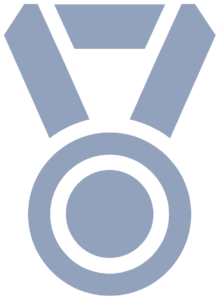2021 Virtual Undergraduate Research Symposium
2021 Virtual Undergraduate Research Symposium
Electrochemical Deposition of Superconductors
Electrochemical Deposition of Superconductors
 3RD PLACE POSTER
3RD PLACE POSTER
PROJECT NUMBER: 85 | AUTHOR: Joshua Moler, Physics and Matthew BarbattinI, Physics
MENTOR: Serena Eley, Physics
ABSTRACT
This research project involves the growth of thin superconducting films of rhenium using the methods of electrochemical deposition. The critical temperature (Tc) of the films was measured using a low-temperature magnetometer. The films were grown on gold-plated silicon wafers with a titanium seed layer, courtesy of the National Renewable Energy Lab. The substrates were glued to a copper wire using silver epoxy. The experimental apparatus consisted of a power supply with the positive terminal connected to a platinum coated anode, and the negative terminal connected to the substrate. The rhenium was present in an aqueous solution of ammonium perrhenate and sulfuric acid, with a pH of approximately 1. A current of approximately 0.01 A was applied across the substrate by placing the anode and substrate in the solution. Rhenium thin films were successfully grown, and the critical temperature was measured to be approximately 3 K, which matched the literature values.
PRESENTATION
AUTHOR BIOGRAPHY
Joshua Moler is a senior in Engineering Physics. He has done experimental research involving thin films and superconductivity, as well as theoretical work involving quantum information technology. Aside from superconductors, his primary interests involve topological quantum computing and anyonic behavior in 2D materials. After graduation, he hopes to work in the industry researching and developing quantum computing technologies.
Matthew Barbattini is currently a junior majoring in Engineering Physics and does research in the physics department. He is interested in doing research in experimental physics, specifically in condensed matter physics, to gain skills relating to low-temperature analysis. After graduation, he plans on working as an engineer in the aerospace industry, focusing on thermal or cryogenic design of aircraft.
This is an interesting research project. I don’t know much of it myself, so I liked that you talked about the background before going into too much detail.
Thank you for the feedback! I’m glad you found our project interesting.
Nice work! Of all the different applications of this what is it that you are most excited about?
Thanks! I am most excited about rhenium’s application in quantum computing. It could be used in quantum circuits at ultra-cold temperatures.
This is some super cool stuff, gets me excited to do some of my own research in physics! What was your favorite part of this research?